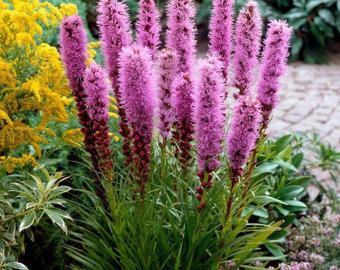Deer's Tongue
From Wikiwel
Other Names : Liatris odoratissima, Carphephorus odoratissimus, Trilisa odoratissima, Vanilla Leaf, Wild Vanilla, Deers Tongue, Deertongue
Special Precautions of Deer's Tongue
Contains the blood thinner Coumarin : Coumarin should not be taken while using anticoagulants. Coumarin increases the blood flow in the veins and decreases capillary permeability. Coumarin can be toxic when used at high doses for a long period Medicinal
Health Benefits and Uses of Deer's Tongue
Action and Uses: Demulcent, febrifuge, diaphoretic. Aromatic, stimulant, and tonic, used as a corrective.
- Has been used for diuretic effects
- applied locally for sore throats and gonorrhea.
- A warm, bitter drink prepared from the leaves of Deers Tongue is said to be effective in reducing fevers, soothing irritated mucous membranes and cleansing the blood, by promoting perspiration.
- It has also been used as a tonic in treating malaria.
- A powerful stimulant, highly regarded by Native Americans as an aphrodisiac, and said to induce erotic dreams.
- The leaves are used to give tobacco a vanilla flavor They have a warm bitterish taste. Their perfume is largely due to Coumarin, which can be seen in crystals on the upper side of the smooth spatulate leaves. * Coumarin has blood-thinning, anti-fungicidal and anti-tumor activities.
- It has many spiritual connections with all sorts of people who believe that carrying the herb on their person promotes good luck and, in particular, makes their speech clear and comprehensive, eloquent and concise. Of course this is purely a matter of folklore but the aroma of the herb when subjected to body heat makes a very pleasing scent and is likely to promote attention to the wearer.
